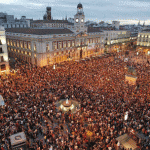
Deviations, Part 1: The Castoriadis-Pannekoek Exchange
Spanning an entire generation, a linguistic divide, and a geographical shift, the epistolary encounter between Anton Pannekoek and Cornelius Castoriadis in many ways marks the internal transformation of the ultra-left. But the ultra-left, far from a historical relic, is making headlines again.
 Viewpoint Magazine
Viewpoint Magazine